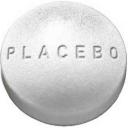Second-Order Placebo Effects
Saturday, July 4th, 2009 Placebos, or the assumption we are receiving a treatment (often a drug) when we are not, can have very real effects and even change behaviors. Placebos are like “mind medicine” or improvement through belief rather than actual intervention. As such, they are of great interest to cognitive designers.
Placebos, or the assumption we are receiving a treatment (often a drug) when we are not, can have very real effects and even change behaviors. Placebos are like “mind medicine” or improvement through belief rather than actual intervention. As such, they are of great interest to cognitive designers.
That’s why this news item on research into the placebo effect at the University at Buffalo caught my eye:
“Now a recent review of research by University at Buffalo pediatric psychologists suggests that such medication, or the assumption of medication, may produce a placebo effect — not in the children, but in their teachers, parents or other adults who evaluate them.”
Some evidence that the expectation of change can in fact produce change, even in those administering change. The news release explains:
“The act of administering medication, or thinking a child has received medication, may induce positive expectancies in parents and teachers about the effects of that medication, which may, in turn, influence how parents and teachers evaluate and behave toward children with ADHD,” said UB researcher Daniel A. Waschbusch, Ph.D., lead author of the review.
Does this have implications for how we approach organizational change?